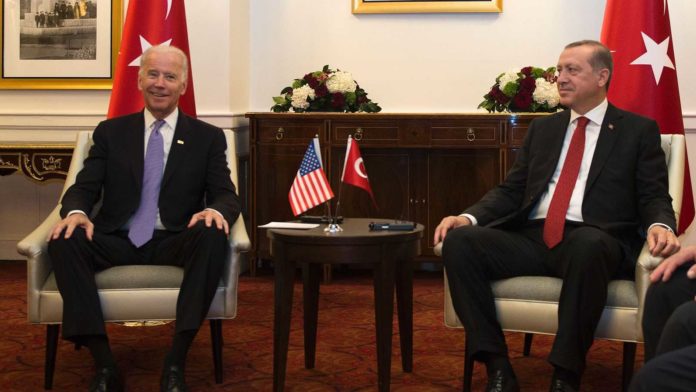By Natasha Turak
WASHINGTON (CNBC) — Tensions between the U.S. and Turkey have been mounting for a while.
But under outgoing President Donald Trump, many of the potential flashpoints between the NATO allies were smoothed over thanks to a friendly relationship between Trump and Turkish President Recep Tayyip Erdogan.
Looking ahead to a Joe Biden administration, there’s a chance that some of those tensions could blow up — but there is also chance for reconciliation. Whatever happens, the next four years for Turkey and its relationship with Washington are likely to look very different from the last four.
“The only thing holding the relationship together for the last several years has been Trump’s personal relationship with Erdogan,” Michael Rubin, a former Pentagon official and resident scholar at the American Enterprise Institute, told CNBC. “With Trump removed, Erdogan should be very, very worried.“
That’s because there is no shortage of conflict points between Ankara and Washington; points that reveal contrasting attitudes toward geopolitics, alliances and governance.
Among those are human rights in Turkey, which Democrats in particular have spoken out against; Turkey’s purchase of Russia’s S-400 missile system which angered its NATO allies and nearly triggered U.S. sanctions; and its military action against America’s Kurdish allies in northern Syria and support for Islamic extremist groups, which Ankara argues are not terrorists and are necessary to protect its interests in the region.








